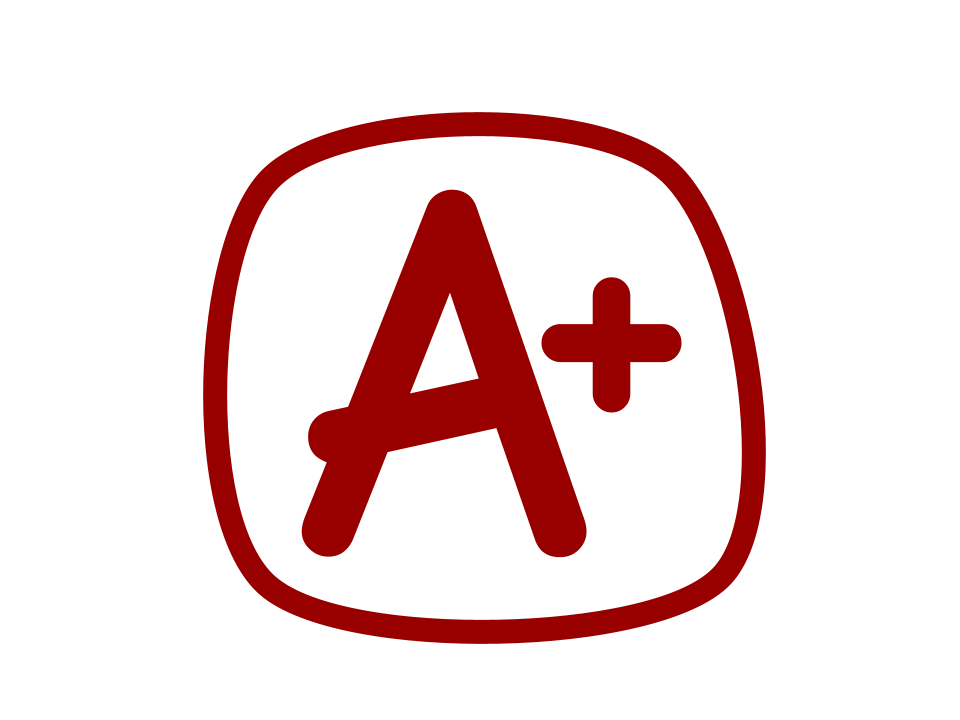According to the U.S. Department of Education, 54 percent of American adults have a literacy level at or below that of a 6th graders. Over half of Americans don’t have the reading comprehension to read The Wall Street Journal or The New York Times. We are setting up students in America for failure, and something in the education system needs to change. The first step to this process is changing the way that we grade.
Many classes are based on assessment and memorization, which often doesn’t translate to a student’s academic ability. “Our only way to show academic ability is to perform on tests, and for someone with test anxiety it’s really hard to communicate exactly what I know,” said Hellgate senior Annika Johnston. Oftentimes a student’s ability and willingness to learn isn’t taken into account with test grades.
The effort that a student puts into work can be overlooked in favor of grades. “I feel like you can put a lot of effort into something and work really hard on something and still not be great at it. Like math. Not everybody’s great at math. You can try really hard, but that doesn’t mean that you’re gonna get a great grade, it also doesn’t mean that you’re not intelligent,” said Hellgate senior Kaycee Metully. This can lead many students to just give up, when you’re trying your very hardest, but your grades don’t reflect your effort. “I feel like a lot of people that don’t try hard in school feel like they’re just going to fail anyways. That could be a reason that students may not be trying to the best of their ability,” said Metully.
Hellgate senior Eddie Rosbarsky elaborated on this point stating “I think that the grading system is both a motivator and a hindrance simply depending on where you find yourself at the start of your school career. Let’s say that you have like a 3.5 or a 4.0 GPA, you’re motivated to keep that, just based on the expectations that are put on you by your teachers and the belief in you from your peers. But if you are a 2.0 or a 1.5 GPA student that is really struggling, it’s hard to motivate yourself to come to school in the first place. So you’re not really motivated to give it your best effort.”
Students who are struggling or learn a different way are often labeled as lazy or disobedient, instead of taking a different approach to their education. This can create an aversion to school, if you know you are going to fail a class, it’s much easier to not put in the effort.
If you are a student who struggles in school, having mountains of assignments from each of your seven classes can become extremely overwhelming. “I sometimes don’t understand my assignments very well or I feel a lack of motivation to do them. So sometimes I just end up not doing them,” said Hellgate junior Maximo Iverson Corona. Sometimes it can feel like teachers don’t understand how fast the workload piles up, leaving students feeling swamped and unmotivated.
Our current grading system is failing students, and it doesn’t focus on success after college. A few minor changes could include focussing on study skills, gaining and gathering information, how to use your resources to your advantage, and interactive and hands-on curriculum. These can be implemented in many ways through open book tests, in-class discussion, giving students more choice in topic matter, activities like posters and videos, and cutting back on homework. Make learning fun, and students will show up and want to learn.
While many of these strategies are already being implemented in classrooms, they often fail in engaging students, due to the pressure of keeping or raising grades. Students focus on hitting all the right marks, instead of engaging and focussing on the content of a class.
According to a 2019 study conducted by the Pew Research Center “Most teens (61%) say they personally feel a lot of pressure to get good grades, and another 27% say they feel some pressure to do so.” This is the biggest obstacle in the way of our learning. Students stress about keeping an A in all of your classes rather than the content of a class, we are not set up to be learners for life.
Ungrading is one of the most popular grading alternatives being suggested in the world of academics. Duke University describes ungrading as “a form of ‘grading for growth,’ in that the primary purpose of the assessment is to help students learn and improve their knowledge and skills, rather than to create a summative score that students use to compare themselves against an external credential.” This system could radically transform the way we learn.
Ungrading focuses on both student and teacher feedback, which can happen without a grade attached. Having students grade their own work and explain their process can help the student process what they learned and make goals for future work. This can also help the teacher understand a student’s thought process to offer more suitable feedback.
Ungrading also gives students the opportunity to revise work without any consequences. This style of learning encourages students to accept feedback and turn in their best work possible. This positive feedback loop is extremely beneficial to a student’s understanding of a subject. It puts students at the forefront of their learning, helping them gain critical thinking skills, and setting them up for success.
Of course this sort of progress relies on the entire U.S. school system to make a change. The biggest problem we face in changing the traditional grading system is the current shortage of teachers in the U.S.. According to the Bureau of Labor Statistics there were 567,000 fewer teachers in the public school system post-pandemic. This leads to larger class sizes, and more pressure on public school teachers. 60 percent of teachers experience school related stress frequently or often. Teachers are underpaid, treated poorly by students, and are viewed as glorified babysitters. It’s really no wonder that teachers are opting for other job options. Teachers don’t have the time or aren’t allowed to stray from curriculum and teach in more productive ways, even if they wanted to.
Changing our grading system won’t happen overnight, and there are many obstacles that have to be overcome. I hope for a better future for education, where student engagement and growth are rewarded in ways other than a grade. Where class can be fun and engaging, a school where students are excited to learn.






